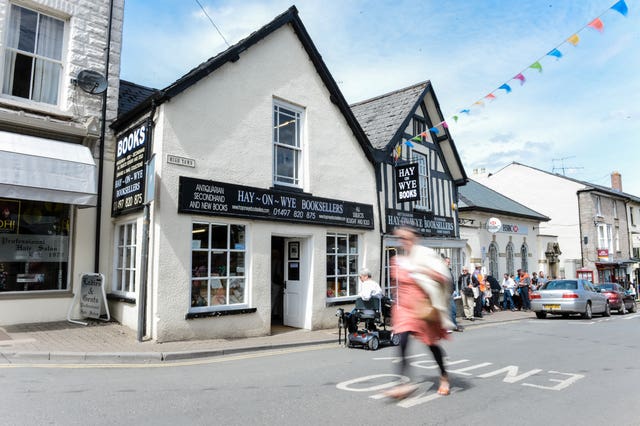Locations across Britain for new access to cash pilot initiative revealed
The areas which successfully applied to take part in the Community Access to Cash Pilot initiative will look at how to keep cash viable.

Eight locations across Britain have been chosen to take part in an initiative to help improve communities’ access to cash.
The areas which successfully applied to take part in the Community Access to Cash Pilot (CACP) initiative will work with the banking industry to look at solutions to keeping cash viable for people and businesses.
Ways to make improvements could include, for example, installing new ATMs, having a place for retailers to deposit cash locally, or sharing bank branch facilities.
There will also be a focus on “digital inclusion”. Better broadband connections or improved digital skills could be ways to help people to access money.
Solutions could vary depending on the needs of a community.
Further locations will be confirmed in the coming weeks.
The pilot initiative is led by Natalie Ceeney, who chaired the Access to Cash Review. The findings will be published in early 2021.
Cash use has plummeted during the coronavirus outbreak, with many shops encouraging people to pay by card and people visiting ATMs less often.
According to UK Finance, 7.4 million people rarely or never used cash in 2019 – but 2.1 million used cash regularly.
Ms Ceeney said: “Over the past decade we’ve seen a massive shift from cash to digital payments, and Covid-19 has accelerated that trend further.
“But we know that digital payments don’t yet work for everyone, and for many individuals and communities, cash remains essential.

John Glen, Economic Secretary to the Treasury and City Minister, said: “I look forward to seeing the progress made by the pilots, as the Government develops legislation to protect access to cash, and would like to thank Natalie Ceeney CBE for her work on this important issue.”
Martin Kearsley, banking director at the Post Office, said: “This initiative will help bring real focus onto robust and sustainable solutions for many people living in smaller towns and rural communities who rely on easy access to cash.
“With 11,500 branches across the UK, including some in the trial communities, Post Offices help avoid cash deserts by providing a solution to people’s cash and banking deposit needs.”
Federation of Small Businesses (FSB) policy and advocacy chairman Martin McTague, who sits on the CACP Board, said: “One in four small high street firms say cash is the most popular payment method among customers.
“That said, cash use was in decline before coronavirus hit, and the pandemic has accelerated that decline.”
Gareth Shaw, head of money at Which?, said: “With the existing cash system being pushed closer to the edge of collapse by the coronavirus outbreak, it’s clear that new solutions are desperately needed.”
John Howells, chief executive of cash machine network Link said: “Our analysis of ATM withdrawals during the lockdown shows significant differences depending on where you live and that cash is even more important in deprived areas.
“The UK isn’t ready to go cashless and Link is working hard to support communities maintain maintain cash access.”
Here is an overview of the selected pilot schemes, provided by the Community Access to Cash Pilot initiative:
– Ampthill
Ampthill is a market town situated in an area of mid-Bedfordshire which is targeted for extensive new home building.
Businesses and the significant number of older residents need options for depositing and accessing cash.
– Botton Village
Botton Village: Camphill Village Trust provides supported living and day support opportunities to people with learning and other disabilities.
Camphill Village Trust is keen to empower people to become more financially independent.
– Burslem
The Burslem community is keen to explore solutions for local retailers to deposit and withdraw cash, have access to cash for the night-time economy and to support consumers with budgeting and digital options.
– Cambuslang
Cambuslang was left “unbanked” following bank branch closures in quick succession.
The community is keen to support financially vulnerable customers in accessing cash, and small businesses.
– Denny
Denny is located between Edinburgh and Glasgow, with a population of around 8,000, and with 16% of the population over 65 years old.
It has seen a reduction in access to cash facilities.
– Hay-on-Wye
Hay has many independent retailers and visitors, making businesses’ ability to access and deposit cash vital.
Its annual book festival raises additional challenges, with large numbers of people needing to access a limited cash infrastructure for a short period.
– Lulworth
Lulworth Camp is a Ministry of Defence army barracks with about 1,500 families and service personnel permanently on camp.
The closest village is West Lulworth which has a population of around 700 people, which is also a tourist spot as it is situated on the Jurassic coast.
– Rochford
Rochford has an ageing population which is heavily reliant on cash.





